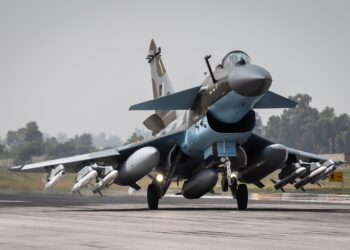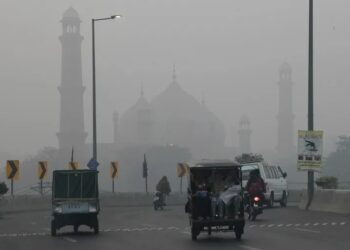Written by: Abdul Basit Alvi
Since its establishment in 1947, Pakistan has faced a challenging journey marked by political instability, economic difficulties, social divisions, and security threats. Despite its rich cultural heritage and strategic geopolitical importance, the nation grapples with numerous issues that hinder its development and threaten stability. Understanding these challenges is essential for finding sustainable paths toward growth and peace.
Political instability has been a persistent concern, characterized by frequent changes in government and power struggles among political factions. Corruption is widespread, undermining governance and public trust. High-profile scandals and a lack of accountability foster a culture of impunity, obstructing effective governance. The electoral process is fraught with challenges, including allegations of rigging, voter intimidation, and a lack of transparency, all of which erode public confidence in democratic institutions and heighten political tensions.
Economically, Pakistan has faced recurring crises, including high inflation, fiscal deficits, and currency devaluation. This instability hampers growth and worsens poverty. A rising debt burden—both domestic and external—poses a serious threat to economic stability, restricting the government’s ability to invest in essential services. With a growing population, unemployment remains a significant issue, and underemployment along with a lack of job opportunities fuels widespread poverty and social discontent.
The energy crisis severely limits industrial growth and impacts citizens’ quality of life. Problems such as outdated infrastructure, reliance on fossil fuels, and insufficient investment in renewable energy exacerbate the situation. The education system also faces multiple challenges, including low literacy rates, inadequate facilities, and a shortage of qualified teachers, with urban-rural disparities further entrenching social inequality. Access to quality healthcare is limited, especially in rural areas, where high maternal and child mortality rates and inadequate facilities underscore the need for comprehensive reforms.
Gender inequality is deeply ingrained in Pakistani society, affecting women’s access to education, healthcare, and economic opportunities. Cultural norms and legal barriers often impede women’s empowerment. With a large youth population under 30, disenchantment with political and economic systems can lead to unrest, as a lack of opportunities and political representation fuels frustration among young people.
Pakistan has also been significantly impacted by terrorism and extremism, arising from various internal and external factors. The rise of militant groups threatens national security and public safety, while the complex geopolitical landscape, including tensions with India and Afghanistan, complicates the security situation. Ongoing conflicts affect domestic stability and military expenditure, and the presence of various terrorist groups creates additional security challenges.
As technology advances, Pakistan faces growing cybersecurity threats, making the protection of critical infrastructure and sensitive data increasingly important. The country is also highly vulnerable to climate change, experiencing extreme weather events, floods, and droughts, all of which threaten agriculture and water resources and impact food security. Water scarcity is a pressing concern, exacerbated by population growth, climate change, and mismanagement, leading to potential regional conflicts over resources.
Rapid urbanization has resulted in increased pollution and inadequate waste management in cities, with air and water quality issues posing serious health risks to urban populations. Habitat destruction and pollution further contribute to biodiversity loss in Pakistan. Safeguarding ecosystems is essential for preserving ecological balance and supporting communities. Ongoing tensions with India, especially regarding Kashmir, pose a major challenge, impacting regional stability and economic collaboration. Pakistan’s dependence on foreign aid further complicates its sovereignty and economic stability, raising concerns about long-term sustainability and self-sufficiency. Additionally, the geopolitical rivalry between major powers, particularly the U.S. and China, shapes Pakistan’s foreign policy, making it difficult to balance these relationships with national interests. Trade barriers and tariffs hinder Pakistan’s economic growth, while strengthening regional trade agreements could unlock opportunities for development. Terrorism stands out as one of Pakistan’s most pressing challenges, impacting stability, security, and socio-economic progress. Defined as the use of violence and intimidation for political purposes, terrorism in Pakistan has deep historical roots, evolving through various phases since the country’s formation in 1947.
To grasp the dynamics of terrorism in Pakistan, it’s essential to consider its historical context, various forms, socio-economic effects, government and military responses, and the international repercussions.
The Soviet invasion of Afghanistan significantly altered the region’s geopolitical landscape, with Pakistan becoming a frontline state in the Cold War, supported by the U.S. and its allies. This conflict gave rise to numerous militant groups, with the influx of jihadist ideology during this period laying the groundwork for future terrorism. The subsequent withdrawal of Soviet forces created a power vacuum in Afghanistan, allowing these groups to gain influence.
The 1990s saw the emergence of various militant factions in Pakistan. The September 11, 2001 attacks and the resulting U.S. invasion of Afghanistan had profound implications for Pakistan, forcing the country to confront groups it had once supported. This led to military operations against various factions, significantly shifting the terrorism landscape in the region.
Sectarian violence has also persisted, with groups conducting targeted attacks against their rivals, resulting in thousands of deaths. Balochistan has been a hotspot for ethno-nationalist insurgencies, with the Baloch Liberation Army (BLA) posing a major security threat. Organizations such as the Tehrik-i-Taliban Pakistan (TTP) have sought to impose their interpretation of Islamic law through violence, employing tactics like suicide bombings and assaults on military and civilian targets.
Major cities like Karachi and Lahore have witnessed significant urban terrorism, including high-profile attacks on security personnel, politicians, and civilians. The 2014 Peshawar school attack, which claimed the lives of over 140 children, underscored the vulnerabilities of urban areas. The human toll of terrorism in Pakistan has been staggering, with tens of thousands of lives lost and profound psychological impacts on survivors and communities, leading to widespread trauma and fear.
Terrorism has severely hampered Pakistan’s economic development. The persistent threat of violence deters foreign investment, while the financial burden of military operations and enhanced security measures strains the national budget. Furthermore, terrorism has deepened social divisions, complicating efforts for peaceful coexistence among different religious and ethnic groups. The Pakistani military has undertaken multiple operations against militant groups, most notably Operation Zarb-e-Azb in 2014, which targeted terrorist strongholds in North Waziristan. These operations have achieved notable success. Following the Peshawar school attack, the National Action Plan (NAP) was introduced to tackle various facets of terrorism, including legal reforms, improving law enforcement capabilities, and countering extremist narratives. Initiatives aimed at countering radicalization through community engagement and education have been launched.
Pakistan’s political landscape is fragmented, complicating unified counter-terrorism efforts. Rivalries among political parties often obstruct collaboration on security matters, and corruption within law enforcement and government institutions undermines anti-terrorism initiatives. Strengthening governance and accountability is essential for enhancing the effectiveness of counter-terrorism measures. The media plays a complex role in shaping public perceptions of terrorism and counter-terrorism efforts. While sensationalist reporting can heighten fears, responsible journalism can promote informed public discourse. The terrorism landscape in Pakistan is continually changing, with new groups and ideologies emerging, making it crucial to monitor these trends for proactive measures. Despite the challenges, there are avenues for peace and reconciliation, particularly through dialogue and engagement with marginalized communities. An effective counter-terrorism strategy requires a multifaceted approach, incorporating military action, community involvement, and international collaboration. Long-term solutions must address root causes such as poverty, education, and governance.
The military’s role in combating terrorism in Pakistan has been vital, especially under the current Army Chief, who has shown strong commitment to eradicating this threat. General Asim Munir, who became Chief of Army Staff (COAS) in November 2022, has faced numerous challenges requiring decisive leadership. From national security issues to economic crises and natural disasters, the military’s role under his command has been critical in navigating these complexities.
With decades of experience, including significant operational and administrative roles, General Munir previously served as the Director-General of Military Intelligence (MI) and the Inter-Services Intelligence (ISI), providing him with a thorough understanding of Pakistan’s security dynamics. Taking over during a turbulent period marked by terrorism, political instability, and economic strife, his leadership style has been closely observed by both military and civilian sectors.
Under General Munir’s command, the Pakistan Army has intensified counter-terrorism operations, particularly targeting remnants of groups like the Tehrik-i-Taliban Pakistan (TTP) to restore peace in affected areas. With ongoing border tensions, especially with Afghanistan, General Munir has prioritized border security initiatives, including enhanced surveillance and the construction of fences to mitigate cross-border militancy and smuggling.
He has also stressed the importance of intelligence-sharing between military and civilian law enforcement agencies, aiming to preempt terrorist activities and bolster national security. Additionally, the military’s response to domestic unrest, including protests and civil disturbances, has been significant during General Munir’s tenure, focusing on maintaining public order while reinforcing the military’s image as a stabilizing force. In 2022, Pakistan experienced devastating floods that impacted millions of people. General Munir directed military resources toward humanitarian assistance, organizing relief operations and collaborating with civilian authorities for a swift response. The army provided medical aid in affected areas by deploying field hospitals and medical teams to support overwhelmed civilian healthcare facilities. The Pakistan Army has been instrumental in logistics during humanitarian crises, leveraging its extensive resources to transport supplies and aid to remote, often inaccessible regions. General Munir has also promoted military involvement in infrastructure projects, particularly in underserved areas. The army’s engineering corps has been mobilized to build roads, bridges, and schools, contributing to socio-economic development. Recognizing agriculture’s vital role in Pakistan’s economy, the military has engaged in initiatives to enhance agricultural productivity through improved irrigation practices and technology transfer. Under General Munir’s leadership, the army has launched programs aimed at youth engagement and vocational training, providing skill development to help reduce unemployment and foster economic growth. He has worked to strengthen civil-military collaboration by partnering with civilian authorities on various governance issues, offering military expertise in crisis management and policy development.
The military has also participated in community outreach programs to build trust with local populations, which include educational campaigns, health awareness initiatives, and sports events. Additionally, the army has supported civilian law enforcement in maintaining public order, especially in areas with heightened security risks, aiming to enhance overall safety and stability. General Munir has emphasized the military’s commitment to neutrality in political affairs, a critical stance given Pakistan’s history of military involvement in politics, which is intended to promote a stable political environment.
While maintaining this neutrality, General Munir has offered advisory support to civilian leaders on security and governance matters, using military expertise to inform policy decisions. The army has also played a role in mediating conflicts and fostering dialogue among political factions, contributing to a more cohesive political landscape. Looking ahead, strong civil-military relations will be essential for addressing Pakistan’s ongoing challenges. Initiatives that promote dialogue and collaboration can enhance stability. As new threats, including cyber challenges and climate change, emerge, the military’s role will need to evolve, with General Munir’s leadership being crucial in preparing for these changes. Sustainable development initiatives that prioritize human welfare will be vital for ensuring long-term stability, with the military’s involvement in development projects complementing civilian efforts. Strengthening ties with international partners for security and development assistance can also bolster Pakistan’s resilience, and General Munir’s role in fostering these relationships will be important for the country’s future.
In recent years, Pakistan has faced significant economic challenges that require innovative solutions to attract foreign investment and stimulate growth. A notable initiative in this context is the Special Investment Facilitation Council (SIFC), established under General Asim Munir’s leadership as Chief of Army Staff (COAS). The country has grappled with various economic issues, including high inflation, fiscal deficits, and a lack of foreign direct investment (FDI). Recognizing the need for a focused strategy to attract investment, the SIFC was created to streamline and facilitate investment processes in Pakistan, targeting key sectors such as energy, infrastructure, and agriculture. Launched in 2023, the council aims to create a comprehensive framework to tackle the challenges investors face and foster a more favorable investment environment. A primary goal of the SIFC is to attract foreign investment by streamlining bureaucratic processes and providing investors with a clear roadmap for navigating regulations. By cultivating a conducive investment climate, the SIFC seeks to stimulate economic growth, generate jobs, and improve the overall standard of living in Pakistan.
The council aims to establish partnerships among the government, private sector, and foreign investors to facilitate knowledge transfer, technology sharing, and infrastructure development. It is responsible for identifying and eliminating regulatory bottlenecks that impede investment, thus creating a more efficient and transparent investment landscape. The SIFC includes key stakeholders, such as representatives from the military, government, and business sectors. Under General Asim Munir’s leadership, the military’s strong presence reflects its commitment to national development and security. The council functions as an advisory body, offering recommendations to the government on policy reforms, investment strategies, and sector-specific initiatives. The SIFC collaborates closely with various government departments and agencies to facilitate approvals and clearances for investment projects, ensuring a unified approach to investment facilitation. General Munir’s vision for the SIFC focuses on leveraging military expertise to drive economic development. His leadership highlights the crucial role of security in attracting foreign investment, providing assurance to investors about a stable environment.
Understanding that economic stability is intricately linked to national security, General Munir advocates for the notion that a secure atmosphere is essential for attracting investors and fostering economic growth. He has actively engaged with a range of stakeholders, including foreign investors, business leaders, and government officials, to promote the SIFC’s objectives and cultivate a supportive investment ecosystem. Under his guidance, the SIFC has pushed for necessary policy reforms to enhance the investment climate, such as tax incentives and streamlined regulatory frameworks.
Since its inception, the SIFC has achieved promising initial successes in drawing interest from foreign investors, especially in sectors like renewable energy and infrastructure development. The facilitation of foreign investment through the SIFC is anticipated to create numerous job opportunities, boosting local economies and contributing to national growth. The council aims to position Pakistan as a regional investment hub, leveraging its strategic location and resources to attract international businesses. As the SIFC evolves, there are opportunities to broaden its scope to include additional sectors and regions, fostering a more comprehensive approach to national development. Establishing strong international partnerships will be vital for enhancing the SIFC’s effectiveness, with collaborations with foreign governments and organizations leading to knowledge sharing and investment opportunities. The SIFC can also align its goals with the United Nations Sustainable Development Goals (SDGs), promoting investments that support environmental sustainability and social equity.
Turning again to the issue of terrorism, Pakistan has consistently sought innovative strategies to bolster its defense capabilities and ensure citizen safety amid evolving security threats. Under General Asim Munir, the Chief of Army Staff (COAS), Operation Azm-e-Istehkam was launched as a comprehensive initiative to strengthen national security. Facing a range of security challenges, including terrorism, cross-border militancy, and internal unrest, the need for a cohesive and robust security strategy has become increasingly clear. Upon taking command, General Munir emphasized a multifaceted approach to security that integrates military operations, intelligence efforts, and community engagement. Operation Azm-e-Istehkam embodies this vision by addressing both immediate security threats and long-term stability. One of the operation’s primary objectives is to strengthen counter-terrorism efforts by targeting militant groups that threaten peace and stability in Pakistan. The operation aims to bolster security along Pakistan’s borders, particularly with Afghanistan and Iran, to prevent the infiltration of terrorists and smugglers. By tackling internal security challenges, the operation seeks to create an environment that promotes socio-economic development and national unity.
Understanding the significance of community involvement in security, the operation includes initiatives designed to build trust between the military and local populations. It involves deploying troops to high-risk areas, focusing on intelligence-led military actions against identified terrorist hideouts. Precision strikes and targeted operations are central to this strategy, with a key component being the enhancement of intelligence capabilities. This involves improved coordination among various intelligence agencies and the use of technology for real-time data collection. The operation emphasizes collaboration between military and civilian law enforcement to present a unified front against terrorism and crime. Joint task forces have been established to streamline efforts. To win the hearts and minds of the populace, the operation includes community outreach initiatives, such as awareness campaigns about the dangers of extremism and the benefits of peace.
Since the operation began, there has been a noticeable decline in terrorist incidents in several regions, particularly in areas previously affected by violence. Enhanced border security has resulted in significant seizures of weapons and illegal goods, disrupting smuggling networks that often finance terrorism. The operation has fostered greater trust between the military and local communities, leading to increased cooperation and intelligence sharing from residents. This collaborative approach has facilitated more effective responses to security threats, highlighting the importance of inter-agency cooperation in maintaining peace.
Under General Asim Munir’s leadership, Operation Azm-e-Istehkam represents a proactive and comprehensive strategy to tackle Pakistan’s security challenges. By focusing on counter-terrorism, border security, and community engagement, the operation aims to enhance immediate security while also promoting long-term stability and prosperity. As Pakistan navigates the complexities of its security landscape, the principles underlying Operation Azm-e-Istehkam will be vital for ensuring a secure and prosperous future for its citizens.
General Asim Munir’s efforts have garnered widespread appreciation both domestically and internationally. The U.S. Central Command magazine, Unipath, recently described him as a “forceful voice against violent extremists” and praised him as a leader dedicated to the security, stability, and prosperity of Pakistan. The article highlighted General Munir’s leadership, military background, and counter-terrorism initiatives, addressing his views on terrorism, fifth-generation warfare, and the capacity to respond to foreign aggression, alongside socio-economic measures.
The article commended the army chief’s counter-terrorism actions, noting that decisive military operations—including 22,409 intelligence-based operations—were conducted against extremist groups under his command, resulting in the elimination of 398 terrorists. It quoted COAS Munir stating that terrorists must submit to the authority of the state and emphasized that Pakistan would spare no effort to dismantle terrorist networks to protect its citizens. He further asserted the need for the armed forces to be fully prepared for the challenges posed by fifth-generation warfare. Regarding socioeconomic initiatives, the magazine noted that General Munir has been a strong supporter of the government’s efforts with the Special Investment Facilitation Council (SIFC) and the Green Pakistan Initiative, both aimed at job creation and economic development. The quarterly also praised the army chief for his commitment to interfaith harmony and the protection of minorities, consistently condemning incidents of intolerance.
Highlighting the military diplomacy of Pakistan’s army chief, the article commended the strengthening of military and diplomatic relations with countries like the United States, as well as joint military exercises conducted with various nations. It is worth noting that Unipath is a professional military magazine published quarterly by the Commander of the United States Central Command, serving as an international forum for military personnel in the Middle East and South and Central Asia.
The recognition and appreciation for General Asim Munir’s exceptional service from foreign entities underscore his significant contributions to Pakistan’s advancement. The people of Pakistan take pride in their Army Chief, General Asim Munir, and remain hopeful that the Pakistan Army will continue to serve with the same dedication under his leadership.

























